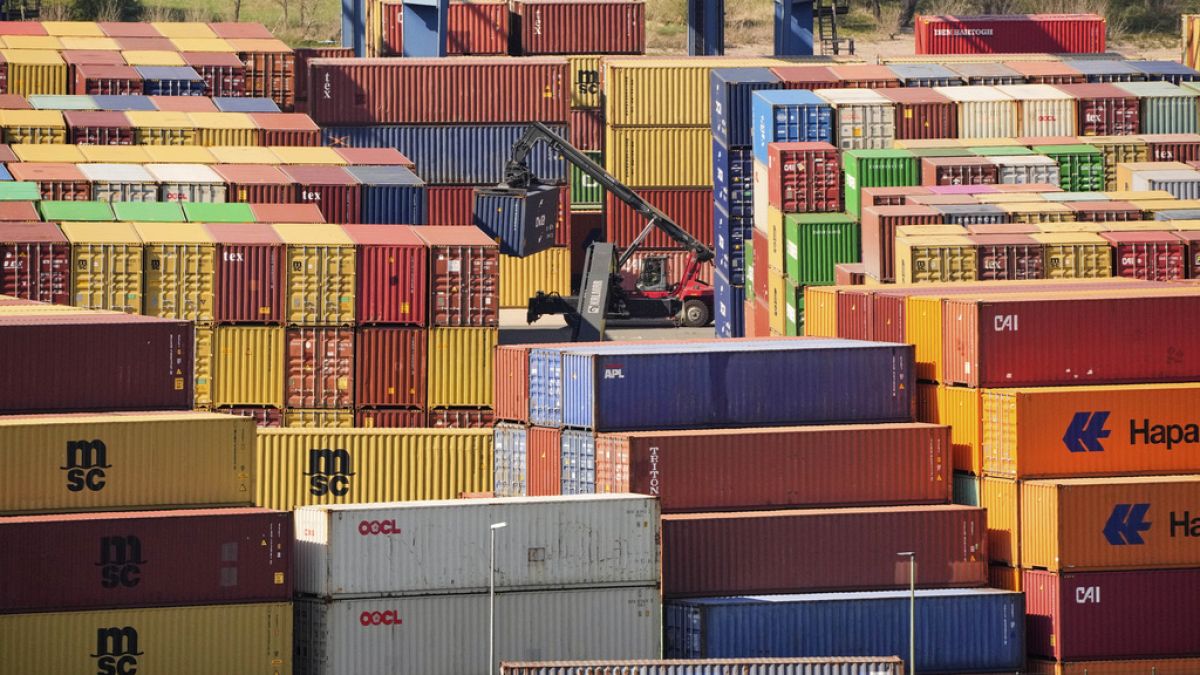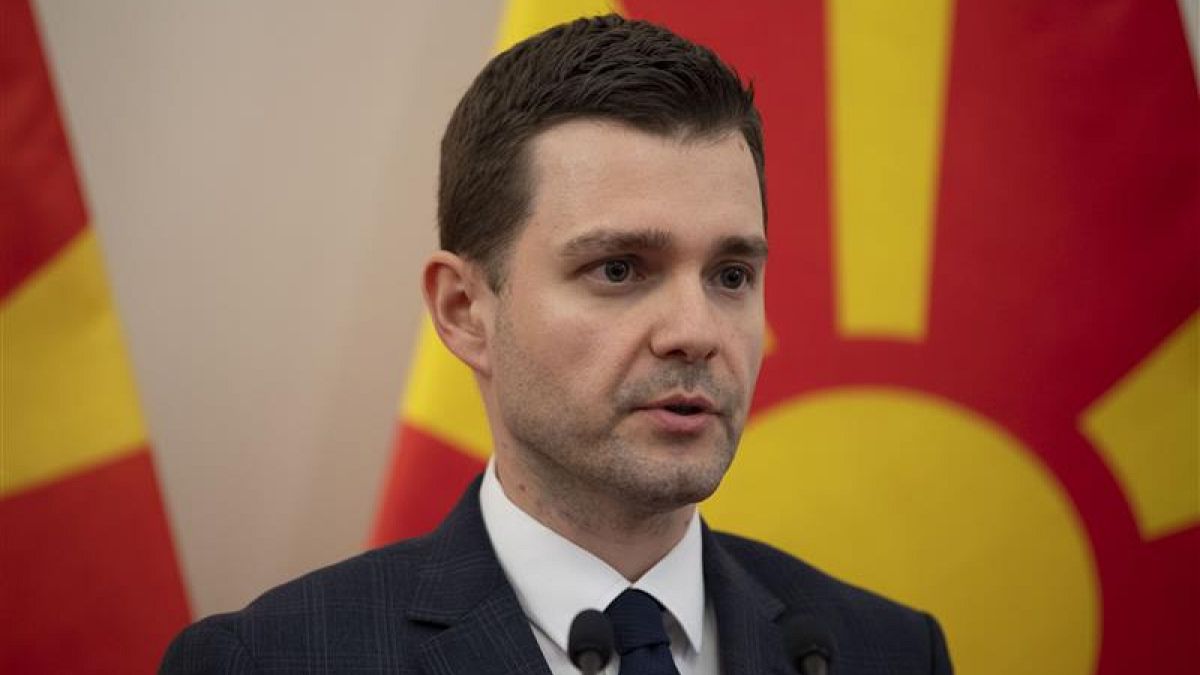North Macedonia has made a clear warning of growing Russian influence in the Western Balkans if the EU does not commit quickly and clearly to enlargement.
“We changed our flag, we changed our currency, we changed the constitution several times, we even changed the name of our country. All with the promise of a window of opportunity that we’ve been told existed if we do these changes for our path towards the European Union,” Foreign Minister Timcho Mucunski told Euronews.
Mucunski warned that the EU’s credibility is at stake, and that enlargement is necessary to prevent weaponising Russian propaganda.
“There are malign actors out there who like to point the finger and say, do you really believe that the EU is honest in its intention for enlargement? Look at what they’re doing to the Macedonians,” he said.
It has been 20 years since North Macedonia applied for EU membership and achieved candidate status. However, its accession has stalled due to disputes with Bulgaria over the status of the Bulgarian minority in country. Skopjie wants institutional guarantees to make sure that no new demands will arise in the future.
“Will this be the final compromise? Will we know that if these constitutional amendments are made, six months down the road, a year down the road, again, there will not be a veto because of a bilateral issue?” he asked.
Skopje also faces renewed tensions with Greece concerning its name, with some ministers refusing to include the prefix ‘North’ for the country, despite the conclusion of the Prespa agreement that ended a three decades-long dispute over the naming.
“I will never be able to say to you that I am happy with the Prespa Agreement, that I believe the Prespa Agreement is good, or that I believe the changing of the name of a nation is fair, especially in the 21st century,” the foreign minister said, adding: “But at the end of the day, as foreign minister and as a lawyer, I understand that the principle of pacta sunt servanda and that agreements must be kept, especially in international public law. Is a fundamental principle.”
Beyond the bilateral problems with Greece and Bulgaria, the European Commission also pointed out limited progress on strengthening judicial independence and serious concerns on corruption, as obstacles to the start of accession negotiations.
“Our government was formed less than a year ago and it has taken very direct steps towards fighting corruption, both high-level corruption but also corruption that exists in mid-level and low-level service, establishing a system of rule of law,” Mucunski said, adding: “But this is not something that we can do overnight.”



